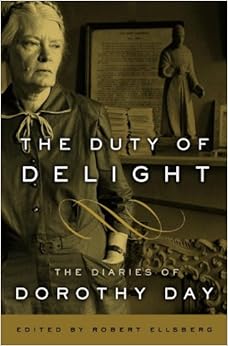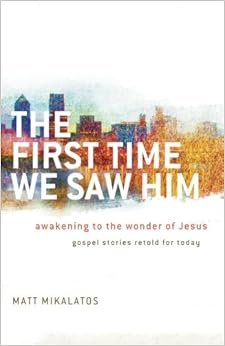As everyone who knows either me or this blog is well aware, I am a Quaker. Specifically, I am a progressive Christian Quaker who likes to keep a foot in multiple worldviews. I am (almost) equally comfortable hanging out with evangelicals, atheist skeptics, academic theologians and philosophers, and of course My Own People, liberal Quakers.
My faith is a choice. I don't "know" there is a god in the bedrock way many do, though sometimes I wish I did. The best way to describe that part of my brain is agnostic — I just don't know. Again, I wish I did. I wish I had that kind of ontological certainty. I don't. There isn't any way to give it to me, and I am not going to lie: I ain't got it.
However, I give my heart and my life enthusiastically to the idea that God (the Christian God) is real, and act in all things as if ze is. Which, you know, I think is fine, because isn't that the whole point of faith? Not knowing, but giving yourself to it anyway? I don't really see myself as less of a Christian or as a Quaker for being honest about that, though I do strongly identify with the Thomas of the Gospels. Anyway.
In the past monthish, I've finished reading three very different books: Karen Armstrong's Fields of Blood: Religion and the History of Violence, Dorothy Day's The Duty of Delight, and Matt Mikalatos' The First Time We Saw Him: Awakening to the Wonder of Jesus.
First up, Armstrong. Nontheists of all stripes, if you are at all interested in religion, Armstrong is for you. Karen Armstrong is probably one of my favorite authors. She's a former Catholic nun turned extraordinarily erudite religious scholar. She has done all sorts of historical investigations about the origins and development of religious thought. She consistently crushes me with the sheer weight of her learning.
Fields of Blood is a slow-motion takedown of the notion that "religion is responsible for most violence in the world," which is one of the most idiotic yet one of the most oft-repeated tropes on the Modern Internet. Over hundreds of pages, Armstrong pretty much points out that humans in groups kill and brutalize other humans in groups, consistently, across the board, and use whatever they possibly can to justify it. Religion gets roped in, just like every other window-dressing that humans in groups can come up with. The State is pretty popular, too.
You have to be pretty committed to get all the way through this 500 page tome, but I found it worthwhile. I already agreed with her thesis, but there were a lot of interesting historical stories going on here that I enjoyed her explorations of. Recommended for everyone.
Second, Dorothy Day. This was a great spiritual “memoir.” The Duty of Delight is just Day's slightly edited diaries. Downsides: only slightly edited. Many pages of quotidian life. Upsides: sprinkled with practical spiritual gems.
 In the end, I loved this because Dorothy Day was such a great lady. Defying the government to feed the homeless, getting arrested in anti-war protests, building up quite the hefty FBI file on her, meeting Mother Theresa, living in intentional community, just generally being fab.
In the end, I loved this because Dorothy Day was such a great lady. Defying the government to feed the homeless, getting arrested in anti-war protests, building up quite the hefty FBI file on her, meeting Mother Theresa, living in intentional community, just generally being fab.I did feel a bit like those rats with levers — heard of that experiment? Rats who always, or in some predictable pattern got food when they hit the lever just hit the lever when hungry (or hit the lever the number of times necessary to get to the food). Rats who never got food when they hit the lever just stopped hitting the lever.
Rats, however, who totally randomly got food upon hitting the lever would start obsessively hitting the lever. That is what Dorothy Day's spiritual insights buried in a mountain of her daily life turned me into. A rat obsessively hitting the pages of this book looking for treasure. Happily I highlighted the passages to return to, so while I will never re-read this book cover to cover again, I can easily return to the gems that I love.
Day was all about loving the unlovable; one quote she returned to time and again was &ldqo;We only love God as much as the person we love the least.” She had a lot to say about the struggles of living in a community and acting lovingly towards those who drive us crazy and as a Quaker deeply engaged with my own community, she really spoke to my heart. Recommended for admirers of Dorothy Day, or people of faith struggling to live in community.
Last, Matt Mikalatos' The First Time We Saw Him: Awakening to the Wonder of Jesus. I saw this mentioned over at Book Riot so I downloaded it for my ereader.
The idea here is to retell the Gospel stories in a modern context. The parables especially can seem very opaque to a modern reader, so they are retold using modern analogies. The Good Samaritan becomes an immigrant Muslim, for instance.
My verdict? Great idea flawed in the execution. I didn't love the prose. Some of the stories came across as super cheesy. Some of them assumed an evangelical Christian context, which was clearly the intended audience for this book, and is something that I feel comfortable with but makes me hesitant to recommend it to others. Translating the Gospel stories into a modern idiom also requires a great deal of interpretation, and the author's theology is far different from mine. He focuses a fair amount on the afterlife, for instance.
Nevertheless, this was a lot of fun, and I found it compelling in some unexpected ways. I loved the loaves and the fishes bit and found that it "opened" the story for me, giving me new insight into it that I hadn't had before. Really great. Recommended for Christians comfortable with evangelical language who are down for a really creative devotional.
There you go: three book reviews for the price of one!


No comments:
Post a Comment